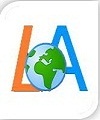Artikulasi Sastra Melayu dalam Tradisi Lisan Sasak di Lombok
Abstract
Abstrak: Khazanah kebudayaan Melayu sebagai warisan yang begitu kaya dijumpai melimpah hampir di seluruh Nusantara. Warisan tersebut tidak hanya dari sisi bahasanya tetapi berbagai kesusastraan Melayu aneka ragam ditulis dalam rentang jaman yang begitu panjang di berbagai daerah Nusantara. Luasnya wilayah penggunaan bahasa Melayu hingga pengaruh budayanya terasa hampir di seluruh kawasan Asia Tenggara. Perkembangan tersebut telah mempengaruhi pula budaya-budaya daerah yang sebelumnya telah dibangun dengan fondasi budayanya masing-masing. Pengaruh kebudayaan Melayu dalam bentuk kesusastraan dapat ditemukan hampir di seluruh Nusantara, termasuk di pulau Lombok yang mayoritas Islam telah mempraktekkan dalam bentuk tradisi lisan bakayat. Tradisi ini telah berkembang sejak abad XVI dan digunakan sebagai media da’wah dan si’ar Islam oleh para tokoh agama saat itu. Tingginya apresiasi masyarakat Sasak terhadap karya-karya sastra Melayu (Islam), dan praktek artikulasi yang dibangun antara penyatuan nilai-nilai religius yang terkandung di dalamnya dengan tradisi adat Sasak serta wacana sosial yang berkembang menjadikan bakayat sebagai identitas budaya Sasak. Artikulasi yang terjadi dalam tradisi bakayat Sasak tidak bersifat tetap dan selalu didasarkan pada kepentingan, dan tradisi tersebut akan terus diartikulasi dan direartikulasi sesuai situasi dan kondisi yang ada.
Abstract: The treasures of Malay culture as a rich heritage are found in abundance in almost all over the archipelago. This legacy is not only in terms of language but various Malay literatures written in a very long span of time in various regions of the archipelago. The extent of the area of the use of the Malay language so that its cultural influence is felt in almost the entire Southeast Asian region. These developments have also influenced regional cultures that had previously been built with their respective cultural foundations. The influence of Malay culture in the form of literature can be found almost throughout the archipelago, including on the island of Lombok, where the majority of Muslims have practiced it in the form of the bakayat oral tradition. This tradition has developed since the sixteenth century and was used as a medium for preaching and spreading Islam by religious leaders at that time. The high appreciation of the Sasak people towards Malay (Islamic) literary works, and the practice of articulation built between the unification of the religious values contained therein with Sasak traditional traditions and the growing social discourse makes bakayat a Sasak cultural identity. Articulation that occurs in the Sasak bakayat tradition is not permanent and is always based on interests, and the tradition will continue to be articulated and re-articulated according to the existing situation and conditions.
Keywords
Full Text:
PDFReferences
Braginsky, Y & O. 1993. The System of Classical Malay Literature. Leiden [KITLV. Working Papers 11]
Grossberg, L. 1992. We Gotta Get Out of This Place: Popular Conservatism and Postmodern Culture. New York and London : Rotledge.
Hadi, Abdul. 2012. Jagad Estetika Sastra Melayu (Makalah). Padang Panjang : Kemendikbud (ISI Padangpanjang)
Hall,Stuart. 1986. ‘On Postmodernism ang Articulation: an interview with Stuart Hall’, ed. L. Grossberg, Journal of Communication Inquiry10 (2). 45-60.
_________. 1985. ‘Signification, Representation, Ideology: Althausser and the Post-Structuralist Debates’. In Critical Studiesin Mass Communication 2 (2). 91-114.
Storey, John. 2006. Cultural Studies dan Kajian Budaya Pop.(terjemahan). Yogyakarta : Jalasutra.
Suyasa, Made. 2011. ‘Tradisi Bakayat dan Bahasa Ibu: Peran Bujangge dalam Pemertahanan Bahasa Sasak’ (Makalah Seminar Nasional Bahasa Ibu) Denpasar : Pascasarjana Univ. Udayana.
DOI: https://doi.org/10.31764/telaah.v7i1.8352
Refbacks
- There are currently no refbacks.
_________________________________________________________
Jurnal Ilmiah Telaah
ISSN (Online) 2620-6226 | ISSN (Print) 2477-2429
Email: [email protected]
Tel / fax : (0370)-633723 / (0370)-641906

This work is licensed under a Creative Commons Attribution-ShareAlike 4.0 International License.








